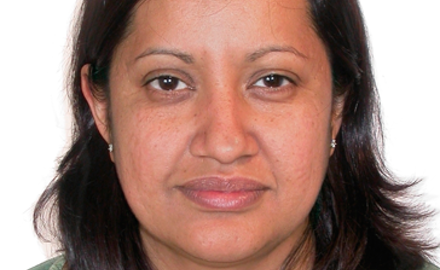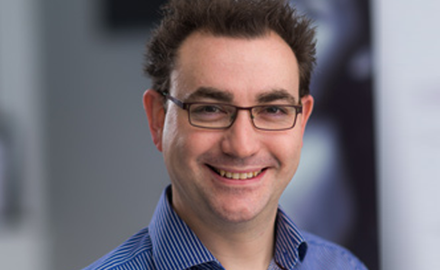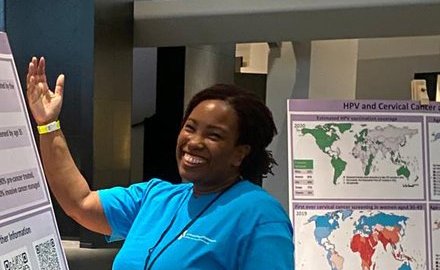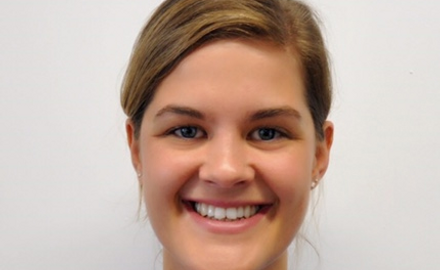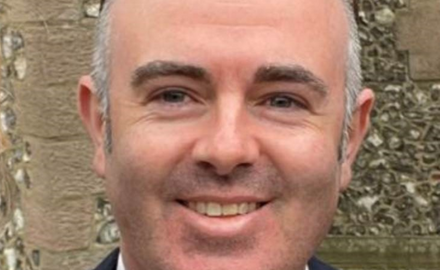Explore careers by theme
Both doctors and scientists working in pathology specialise in a particular area of medicine – a specialty. These include immunology (the study of the body’s immune system and its disorders) and toxicology (the study of how chemical, physical or biological substances affect the body).
Here is a brief introduction to careers in pathology by theme.
Cellular pathology is the study of diseases of tissue and cells. It’s the largest specialty in pathology and includes histopathology and cytopathology. Doctors in cellular pathology cover a huge breadth of medicine. They use sophisticated imaging and a trained eye to examine the microscopic structure of tissue and cells; for example, neuropathologists are transforming our understanding of Alzheimer’s and Parkinson’s.
Even some dentists specialise in cellular pathology, using their surgical and dental skills to diagnose disease in the head, neck, mouth and face.

Doctors and scientists working in haematology study blood and blood-borne diseases. They often work across laboratories, wards and clinics, supporting patients with illnesses such as anaemia, leukaemia and haemophilia. They also oversee the management of hospital blood stocks, making sure patients who need transfusions get access to safe and correct blood when they need it.
Read Chibuzo’s story to find out what it’s like to work in this specialty.

Chemical pathology – sometimes referred to as clinical biochemistry – is the study of bodily fluids. By detecting changes in hormones, fats and other key components of the body’s make up, doctors and scientists can monitor patients’ health and advise other healthcare staff on everything from managing diabetes to improving bone density.
Find out more by reading Karen's career as a Consultant in Chemical Pathology.

Microbiology and virology focus on the spread of infections in hospitals and in the community. If there's an outbreak of food poisoning, meningitis or influenza in your area, you can be sure there’s a team of healthcare professionals working together to stop it.
Pathologists like Natasha study infectious organisms under the microscope and advise hospitals and public health organisations on how to contain them.

The body’s immune system is its key defence – but in some cases, that system can work against itself, causing adverse reactions and even attacking healthy tissue. Those working in immunology support patients with immune systems that are not working as they’re supposed to. They consult on wards and in clinics, oversee laboratories and are involved in clinical trials.
Find out about Lucy's day in the life of as a medical immunologist.

As advances in technology have allowed us to study DNA in ever greater detail, genetics and genomic medicine has become an important weapon in the fight against disease. Some doctors and scientists specialise in using a patient’s genomic profile to diagnose illness and tailor treatments so they’re as effective as possible.
Alongside them, reproductive scientists like Amy help those struggling with infertility to conceive.

The study of toxins – toxicology – touches almost every aspect of our daily lives, from foods, cosmetics and household products to pesticides, plants, metals and industrial chemicals. Toxicologists work across a broad range of environments in healthcare, such as supporting the treatment of hospital patients who’ve been poisoned. They also analyse and process samples in toxicology laboratories, and advise public health bodies and industry on chemical and environmental hazards and drug safety.
Nigel Brown helps head up a toxicology lab for Northumbria Healthcare NHS Foundation Trust.

Not all pathologists care for humans – some work to diagnose and treat disease in animals. Just like human pathology, veterinary pathology has branches for the study of tissues, bodily fluids and microorganisms. Veterinary pathologists investigate pets and farm animals, as well as exotic and rare species. Learn more about this speciality with Veterinary Microbiologist, Lorenzo.
A day in the life
Investigating rare diseases, running laboratories, seeing patients on wards and in clinics – the roles of pathologists across specialties are varied and unique. Find out more about what a typical day is like for some of our members.

